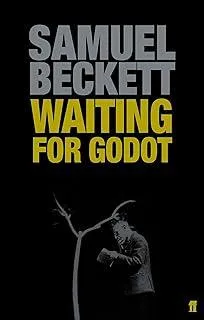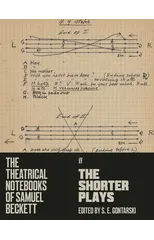Waiting for Godot
A Tragicomedy in Two Acts
(Author) Samuel BeckettFrom an inauspicious beginning at the tiny Left Bank Theatre de Babylone in 1953, followed by bewilderment among American and British audiences, "Waiting for Godot" has become one of the most important and enigmatic plays of the past fifty years and a cornerstone of twentieth-century drama. As Clive Barnes wrote, "Time catches up with genius. . . . "Waiting for Godot" is one of the masterpieces of the century." The story revolves around two seemingly homeless men waiting for someone--or something--named Godot. Vladimir and Estragon wait near a tree, inhabiting a drama spun of their own consciousness. The result is a comical wordplay of poetry, dreamscapes, and nonsense, which has been interpreted as mankind's inexhaustible search for meaning. Beckett's language pioneered an expressionistic minimalism that captured the existential post- World War II Europe. His play remains one of the most magical and beautiful allegories of our time.
Samuel Beckett
Samuel Beckett was an Irish playwright, novelist, and poet known for his minimalist and absurdist style. He is best known for his play "Waiting for Godot," which explores themes of existentialism and the human condition. Beckett's works often feature bleak and dark humor, as well as a focus on the futility of human existence. His contributions to literature have had a significant impact on the genre of absurdist theatre and have influenced countless writers and artists. Beckett was awarded the Nobel Prize in Literature in 1969 for his groundbreaking work in the field.




